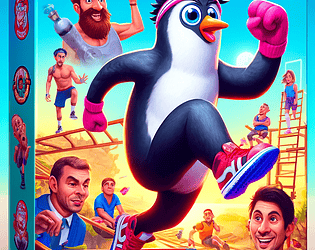You have to manage your "bloat". If you consumed too much calories you waistline will not allow you to pass through the gate. You have to exercise more, i.e. run or climb, to get your caloric intake back in control. There is a gauge on the left side of the screen which shows the calorie balance : if the heart turns black your imbalance prevents you from passing the gate.
Well not quite : if it is black it should reduce speed by 50% or so, only when it is too high will it block the gate.
Thanks for trying the game.


